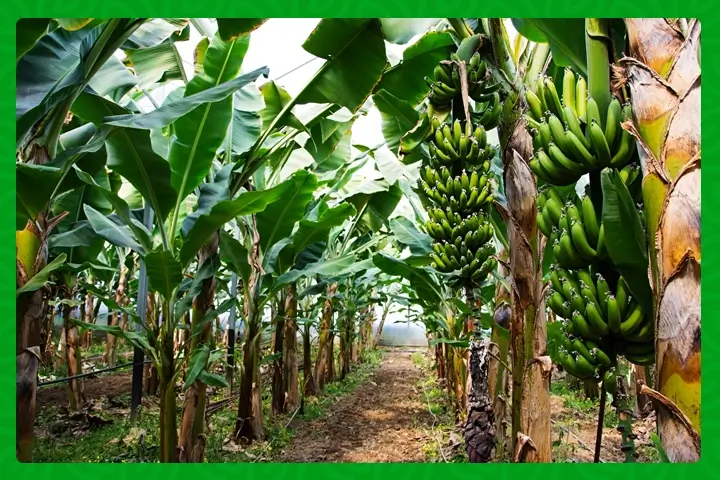
In the verdant landscapes of Rwanda, where bananas are not just a fruit but a cultural icon, a silent menace threatens the very existence of cherished varieties. Panama disease, a devastating wilt caused by a soil-inhabiting fungus, has unleashed its wrath upon the banana industry, pushing iconic varieties like Kamaramasenge and Gros Michel to the edge of extinction. However, in the face of this crisis, agricultural biotechnology emerges as a beacon of hope, offering genetically modified (GM) banana varieties resistant to this insidious disease.
Understanding the Peril:
Panama disease, once confined to Southeast Asia for nearly two decades, has now spread its tendrils across the globe, wreaking havoc on banana plantations in Africa. The disease, with no known cure and affecting beloved varieties like Kamaramasenge and Gros Michel, poses a significant threat to Rwanda’s agricultural landscape. It’s a race against time as the disease persists in the soil for up to 35 years, necessitating urgent action to save these iconic varieties from oblivion.
The Call for Biotechnological Intervention:
Pacifique Nshimiyimana, a prominent banana farmer and agricultural scientist, highlights the urgent need for agricultural biotechnology as a solution to save Rwanda’s staple food. With the banana sub-sector covering a significant portion of Rwanda’s cultivated land, the threat of Panama disease looms large, endangering not only iconic varieties but also the livelihoods of farmers and the availability of a crucial food source for Rwandans.
Nshimiyimana emphasizes the critical role of genetically modified banana varieties in combating Panama disease and preventing the extinction of vital banana varieties like Kamaramasenge and Gros Michel. By harnessing the power of genetic modification, scientists can confer resistance to the disease, offering a lifeline to Rwanda’s banana industry and ensuring the continued availability of these cherished varieties.
A Global Effort:
The significance of agricultural biotechnology in the fight against Panama disease extends beyond Rwanda’s borders. In Australia, scientists have developed the world’s first genetically modified banana, QCAV-4, resistant to the fungus causing Panama disease tropical race 4 (TR4). This groundbreaking development holds promise for the global banana industry, offering a potential solution to combat the spread of Panama disease and safeguard banana cultivation worldwide.
Looking Towards the Future:
As Rwanda finalizes its legal and regulatory framework for the safe use of genetically modified organisms (GMOs), the stage is set for embracing agricultural biotechnology as a tool for enhancing food security and addressing pressing challenges like Panama disease. With the passage of legislation governing GMO crops and efforts to assess policies within the East African Community, Rwanda stands poised to harness the potential of GM crops in addressing food insecurity and advancing agricultural sustainability.
In the face of mounting challenges posed by Panama disease, agricultural biotechnology emerges as a game-changer, offering hope for the preservation of iconic banana varieties and the resilience of Rwanda’s agricultural landscape. With continued support for research, innovation, and regulatory frameworks, Rwanda paves the way for a future where biotechnology plays a pivotal role in ensuring food security, sustainability, and prosperity for generations to come.
Original article written by Michel Nkurunziza
Stay updated with the latest farming tips and agriculture industry news from Africa by subscribing to our newsletter. Don’t miss out on valuable insights and updates. Follow us on Twitter, LinkedIn, and Facebook to join our farming community and stay connected with us.



















